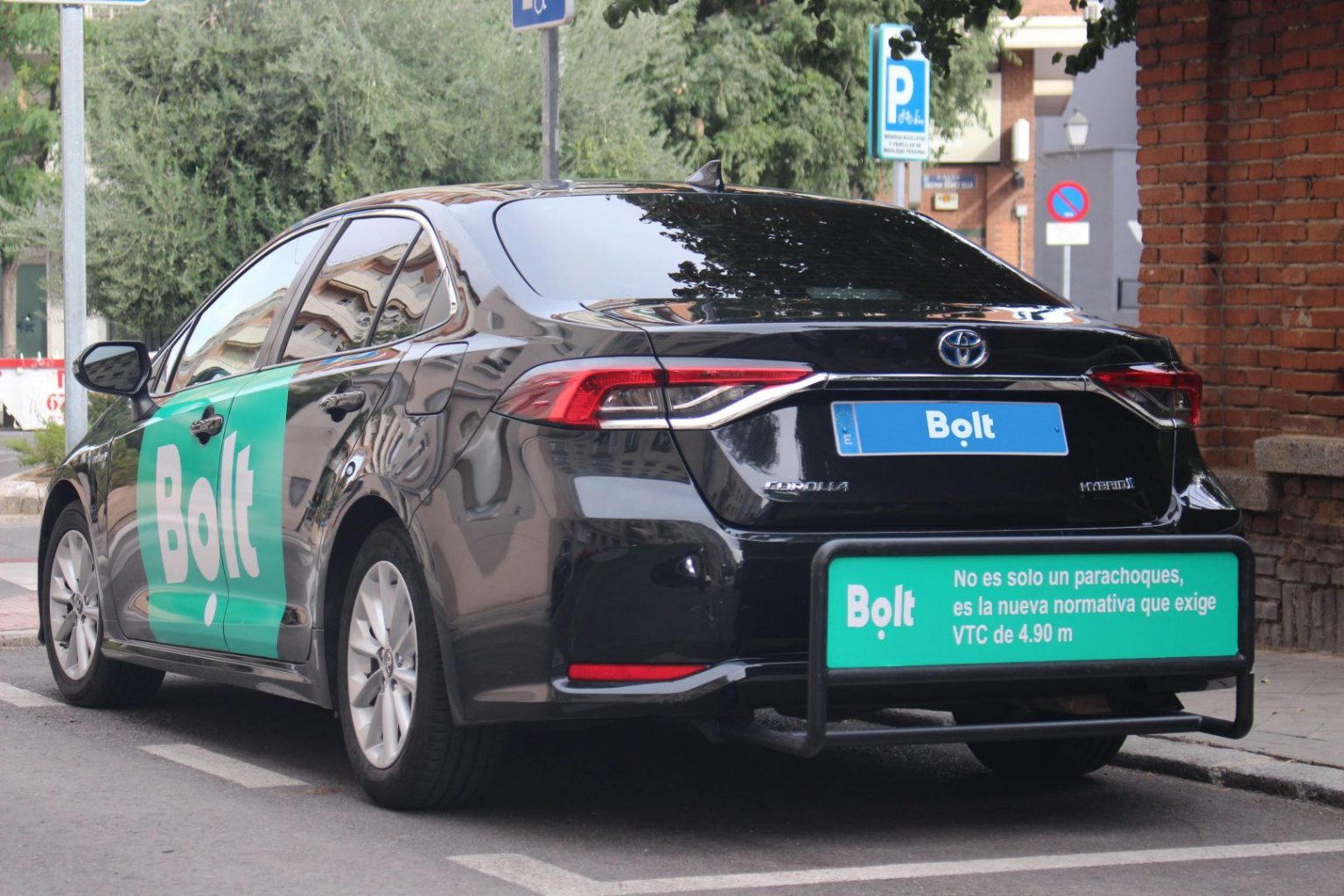Ride-Hailing Firm Bolt Protests Barcelona Rules

Ride-hailing firm Bolt adds bumper extensions to comply with ‘counterproductive’ new regulations in Barcelona
Estonian transport company Bolt has attached bumper extensions to its vehicles in Barcelona in response to new regulations aimed at clamping down on ride-hailing services in the city.
The regulations, which came into force on Saturday, are intended to improve the quality of ride-hailing services, and are part of a nationwide revamp of ride-hailing regulations.
Barcelona first introduced rules in 2019 aimed at limiting the ability of ride-hailing services – known locally as VTCs – to compete with traditional taxi firms.
The latest regulations introduce more stringent requirements for VTC firms, including driving licence, training and civil liability insurance comparable to that required of taxi firms.

‘Counterproductive’
But the rules also require that VTC vehicles be a minimum of 4.9 metres in length, similar to a large van or sedan such as an Audi A6, BMW 5 Series or Mercedes E-Class.
Since Bolt’s vehicles don’t reach this requirement, the company said it is attaching a metal bumper to the rear of its vehicles to extend their length.
“Due to this new regulation, we’ve been forced to think outside the box and come up with a solution that may seem a bit unusual,” the company said in a blog post.
The Tallinn-based firm, which also operates micromobility and food delivery services in more than 45 countries, said it was looking to send a “message about the counterproductive nature of the city’s new VTC regulation”.
New rules
The bumper extensions include a message in Spanish that says, “This isn’t just a bumper; this is a new regulation requiring 4.9-metre VTC cars.”
Jose Manuel Berzal, head of VTC association UNAUTO, told Reuters it was unclear whether the bumper extensions, which cost 1,000 euros (£879) each, would satisfy regulatory requirements.
All Spain’s regions had until Saturday to introduce new ride-hailing regulations, with some areas, such as Madrid, allowing them to continue operating as before.
Other regions failed to meet the deadline, meaning ride-hailing services in those areas can only provide intercity rides and not trips within a city.